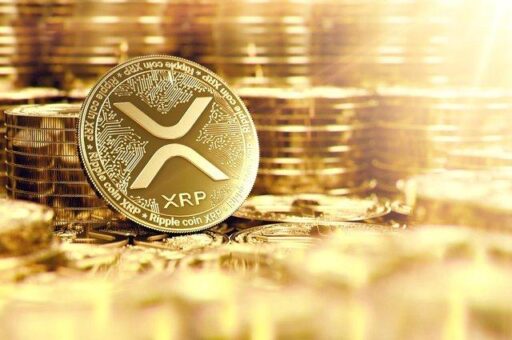Karachi, Pakistan – On Thursday, the State Bank of Pakistan (SBP) issued the official exchange rates for January 20, 2022, providing customers with essential information based on the weighted average rates of commercial banks.
(more…)Author: Faisal Shahnawaz
-

Bitcoin to Pak Rupee on January 20, 2022
KARACHI: The exchange rate of Bitcoin (BTC) in Pak Rupee (PKR) is Rs7,378,494.06 on January 20, 2022, in the open exchange market. The rate of Bitcoin has been calculated and compared with the rate Rs7,316,915.15 on January 19, 2022.
The rate of Bitcoin in US Dollar (USD) is $41,957.87 on January 20, 2022 in the open exchange market. The rate of Bitcoin has been calculated and compared with the rate $41,350.03 on January 19, 2022.
Disclaimer: All data and information is provided for informational purposes only. The data has not been provided for trading purposes or financial, investment, tax, legal, accounting, or other advice. In the case of trading, it is advised to consult your broker or financial representative to verify pricing before executing any trade. The exchange rate does not constitute investment advice. Further, it is not a recommendation to buy, sell or hold any security or financial product.
-

Ripple to Pak Rupee on January 20, 2022
KARACHI: The exchange rate of Ripple (XRP) in Pak Rupee (PKR) is Rs130.66 on January 20, 2022, in the open exchange market. The rate of Ripple has been calculated and compared with the rate Rs128.92 on January 19, 2022.
The rate of Ripple in US Dollar (USD) is $0.74 on January 20, 2022, in the open exchange market. The rate of Ripple has been calculated and compared with the rate of $0.73 on January 19, 2022.
Disclaimer: All data and information are provided for informational purposes only. The data has not been provided for trading purposes or financial, investment, tax, legal, accounting, or other advice. In the case of trading, it is advised to consult your broker or financial representative to verify pricing before executing any trade. The exchange rate does not constitute investment advice. Further, it is not a recommendation to buy, sell or hold any security or financial product.
-

Dogecoin to Pak Rupee on January 20, 2022
KARACHI: The exchange rate of Dogecoin (DOGE) in Pak Rupee (PKR) is Rs28.92 on January 20, 2022, in the open exchange market. The rate of Dogecoin has been calculated and compared with the rate Rs28.46 on January 19, 2022.
The rate of Dogecoin in US Dollar (USD) is $0.16 on January 20, 2022, in the open exchange market. The rate of Dogecoin has been calculated and compared with the rate $0.16 on January 19, 2022.
Disclaimer: All data and information are provided for informational purposes only. The data has not been provided for trading purposes or financial, investment, tax, legal, accounting, or other advice. In the case of trading, it is advised to consult your broker or financial representative to verify pricing before executing any trade. The exchange rate does not constitute investment advice. Further, it is not a recommendation to buy, sell or hold any security or financial product.
-

SBP issues KIBOR rates on January 19, 2022
KARACHI: State Bank of Pakistan (SBP) on Wednesday issued the Karachi Interbank Offered Rates (KIBOR) as of January 19, 2022.
Following are the latest KIBOR rates:
Tenor BID OFFER 1 – Week 9.62 10.12 2 – Week 9.71 10.21 1 – Month 9.82 10.32 3 – Month 10.18 10.43 6 – Month 11.19 11.44 9 – Month 11.24 11.74 1 – Year 11.27 11.77 -

Pakistan’s stocks plunge by 674 points on high oil prices
KARACHI: Pakistan’s stocks on Wednesday plunged by 674 points owing to sharp increase in international oil prices and alarming rise in coronavirus cases in the country.
The benchmark KSE-100 index of Pakistan Stock Exchange (PSX) closed at 44,833 points as against previous day’s ending at 45,507 points, showing a decrease of 674.
READ MORE: Stocks fall 105 points on high oil prices, COVID cases
Analysts at Arif Habib Limited said that bloodbath session was witnessed today due to alarming Covid-19 cases and higher international oil prices.
Market opened on a bleak note and stayed in the red zone throughout the day due to selling pressure from the mutual funds.
READ MORE: KSE-100 observes dull trading on rising COVID cases
Cement sector stayed under pressure due to uptick in international coal prices. In the last trading hour, across the board hefty selling was observed.
Sectors contributing to the performance include Cement (-101.1 points), Technology (-98.8 points), Commercial Banks (-73.0 points), E&P (-50.1 points) and Fertilizer (-47.6 points).
READ MORE: Stocks ends flat in volatile trading
Volumes increased from 165.1 million shares to 236.9 million shares (+43.5 per cent DoD). Traded value also increased by 14.5 per cent to reach US$ 49.2 million as against US$ 42.9 million.
Stocks that contributed significantly to the volumes include WTL, TRG, TELE, CNERGY and HASCOL.
READ MORE: Finance (Supplementary) Bill gets presidential approval
-

Rupee falls four paisas on dollar demand
KARACHI: The Pak Rupee (PKR) declined by four paisas against the dollar on Wednesday owing to dollar demand after surge in international oil prices.
The rupee ended Rs176.22 to the dollar from previous day’s closing of 176.18 in the interbank foreign exchange market.
READ MORE: Rupee declines by 26 paisas to dollar on import demand
Currency experts said that the dollar demand was increasing in the local market as international oil prices were gradually rising.
According to media reports Brent crude futures rose 80 cents, or 0.9 per cent, to $88.31 a barrel at 1035 GMT, adding to a 1.2 per cent jump in the previous session. The benchmark contract touched $89.05, its highest since October 13, 2014.
READ MORE: Rupee recovers 15 paisas against dollar in interbank
Pakistan is the net importer of petroleum products. The country’s oil import bill surged by 113.39 per cent to $10.18 billion during first half (July – December) of the current fiscal year as compared with $4.77 billion in the corresponding half of the last fiscal year.
READ MORE: NBP directed to pay Rs0.5 million to fraud victim
The experts said that the latest rise in international oil price had offset the measures taken by the State Bank of Pakistan (SBP) regarding realization of export receipts. The SBP on January 05, 2022 made it mandatory for exporters to ensure their receipts within 120 days instead of 150 days.
READ MORE: SBP shortens period to 120 days for bringing export earnings
-

Customers’ exchange rates on January 19, 2022
KARACHI: The State Bank of Pakistan (SBP) on Wednesday issued customers’ exchange rates for January 19, 2022. The exchange rate is on the basis of weighted average rates of commercial banks.
The SBP said the data is compiled and disseminated for information only. These exchange rates are estimates that quoted by various commercial banks to their clients.
The banks provide their indicative exchange rates for commercial transactions with customers.
CURRENCY BUYING SELLING AED 47.9489 48.0609 AUD 126.5699 126.8501 CAD 140.7621 141.0817 CHF 192.1473 192.5899 CNY 27.7490 27.8089 EUR 199.4714 199.9373 GBP 239.4942 240.0496 JPY 1.5394 1.5430 SAR 46.9174 47.0258 USD 175.9956 176.4184 -

Bitcoin to Pak Rupee on January 19, 2022
KARACHI: The exchange rate of Bitcoin (BTC) in Pak Rupee (PKR) is Rs7,316,915.15 on January 19, 2022, in the open exchange market. The rate of Bitcoin has been calculated and compared with the rate Rs7,421,229.03 on January 18, 2022.
The rate of Bitcoin in US Dollar (USD) is $41,350.03 on January 19, 2022 in the open exchange market. The rate of Bitcoin has been calculated and compared with the rate $42,184.93 on January 18, 2022.
Disclaimer: All data and information is provided for informational purposes only. The data has not been provided for trading purposes or financial, investment, tax, legal, accounting, or other advice. In the case of trading, it is advised to consult your broker or financial representative to verify pricing before executing any trade. The exchange rate does not constitute investment advice. Further, it is not a recommendation to buy, sell or hold any security or financial product.
-

Ripple to Pak Rupee on January 19, 2022
KARACHI: The exchange rate of Ripple (XRP) in Pak Rupee (PKR) is Rs128.92 on January 19, 2022, in the open exchange market. The rate of Ripple has been calculated and compared with the rate Rs133.42 on January 18, 2022.
The rate of Ripple in US Dollar (USD) is $0.73 on January 19, 2022, in the open exchange market. The rate of Ripple has been calculated and compared with the rate of $0.76 on January 18, 2022.
Disclaimer: All data and information are provided for informational purposes only. The data has not been provided for trading purposes or financial, investment, tax, legal, accounting, or other advice. In the case of trading, it is advised to consult your broker or financial representative to verify pricing before executing any trade. The exchange rate does not constitute investment advice. Further, it is not a recommendation to buy, sell or hold any security or financial product.